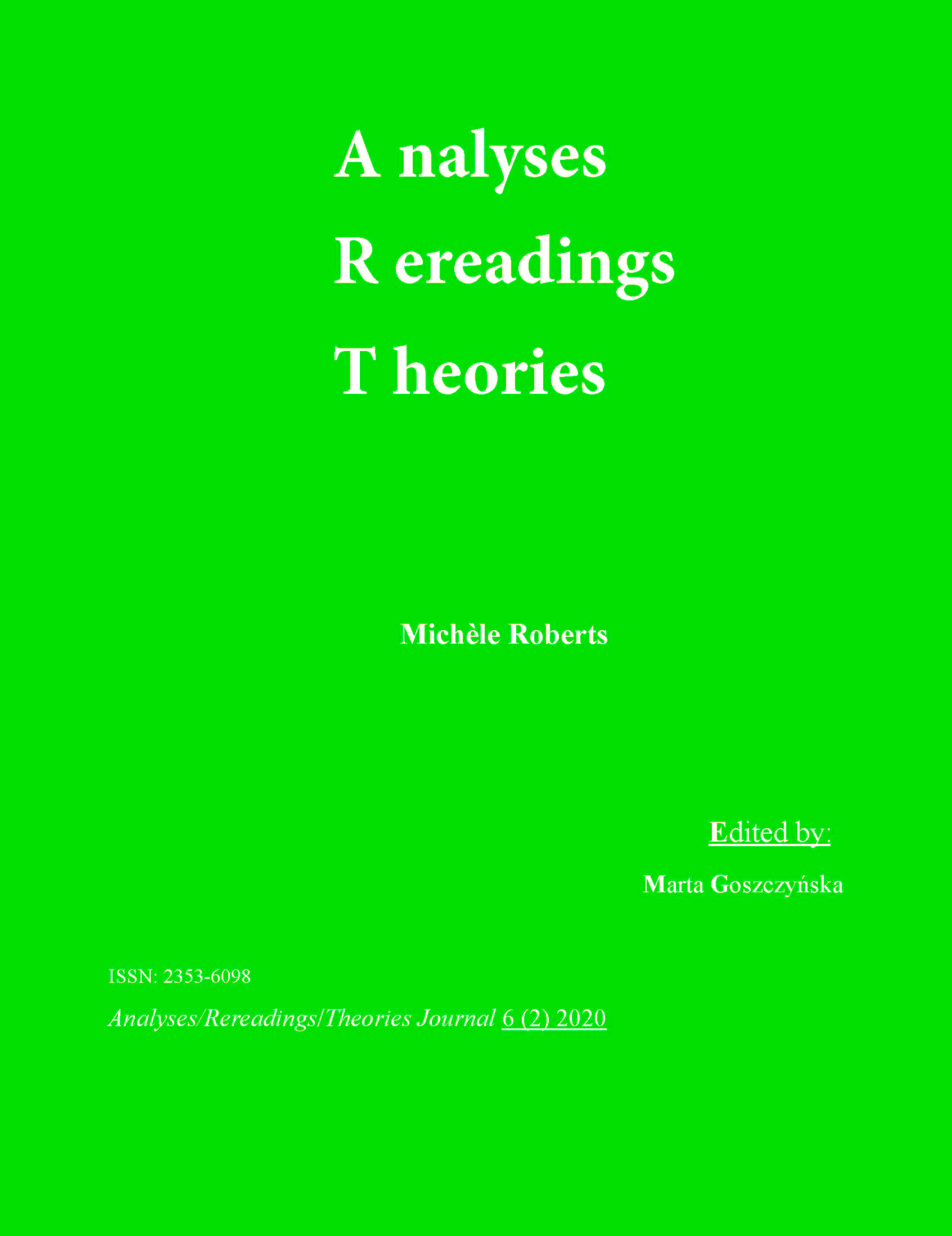Michèle Roberts’s "Flesh and Blood" as an Example of "Écriture Feminine"
DOI:
https://doi.org/10.18778/2353-6098.6.10Keywords:
Michèle Roberts, Flesh and Blood, écriture feminine, gynocritics, feminist criticism, French feminism, women’s writingAbstract
The essay offers an analysis of Flesh and Blood, a novel by Michèle Roberts, first published in 1994. It discusses the book from the vantage point of French feminist criticism, especially écriture feminine, as well as gynocritics. The theory serves as a reference point for a better understanding of the novel’s structure, language and plot. In the opening paragraphs, the essay delineates the main premises of écriture feminine, a French feminist theory represented primarily by Hélène Cixous and Luce Irigaray, and gynocritics, a concept developed by the American feminist scholar Elaine Showalter. It then moves on to portray Flesh and Blood as an example of écriture feminine, analysing the aspects of the novel that mirror the theories of the French feminist critics: characters, motifs, structure, formal ploys and language.
References
Burzyńska, Anna. “Feminizm.” Teorie literatury XX wieku. Ed. Anna Burzyńska and Michał Paweł Markowski. Kraków: Znak, 2007. 391–427.
Google Scholar
Childers, Joseph, and Gary Hentzi, eds. The Columbia Dictionary of Modern Literary and Cultural Criticism. New York: Columbia UP, 1995.
Google Scholar
Cixous, Hélène. “The Laugh of the Medusa.” Trans. Keith Cohen and Paula Cohen. Signs 1.4 (1976): 875–93. https://doi.org/10.1086/493306
Google Scholar
DOI: https://doi.org/10.1086/493306
Falcus, Sarah. Michèle Roberts: Myths, Mothers and Memories. Bern: Lang, 2007.
Google Scholar
Irigaray, Luce. “The Bodily Encounter with the Mother.” Trans. David Macey. The Irigaray Reader. Ed. Margaret Whitford. Oxford: Blackwell, 1991. 34–46.
Google Scholar
Kristeva, Julia. “Women’s Time.” Trans. Alice Jardine and Henry Blake. Signs 7.1 (1981): 13–35. https://doi.org/10.1086/493855
Google Scholar
DOI: https://doi.org/10.1086/493855
Roberts, Michèle. The Book of Mrs Noah. London: Methuen, 1988.
Google Scholar
Roberts, Michèle. Flesh and Blood. London: Virago, 1995.
Google Scholar
Roberts, Michèle. “January Talks to Michèle Roberts.” Interview with Linda Richards. January Magazine, 2000. Web.
Google Scholar
Roberts, Michèle. “Michèle Roberts.” Interview with Jenny Newman. Contemporary British and Irish Fiction: An Introduction through Interviews. Ed. Sharon Monteith, Jenny Newman and Pat Wheler. London: Arnold, 2004. 119–34.
Google Scholar
Roberts, Michèle. “On Women, Christianity, and History.” Interview with Patricia Bastida Rodríguez. Atlantis 25.1 (2003): 93–107.
Google Scholar
Showalter, Elaine. “Feminist Criticism in the Wilderness.” Critical Inquiry 8.2 (1981): 179–205. https://doi.org/10.1086/448150
Google Scholar
DOI: https://doi.org/10.1086/448150
Wittig, Monique. Les Guérillères. Trans. David le Vay. Urbana: U of Illinois P, 2007.
Google Scholar
Published
How to Cite
Issue
Section
License

This work is licensed under a Creative Commons Attribution-NonCommercial-NoDerivatives 4.0 International License.









